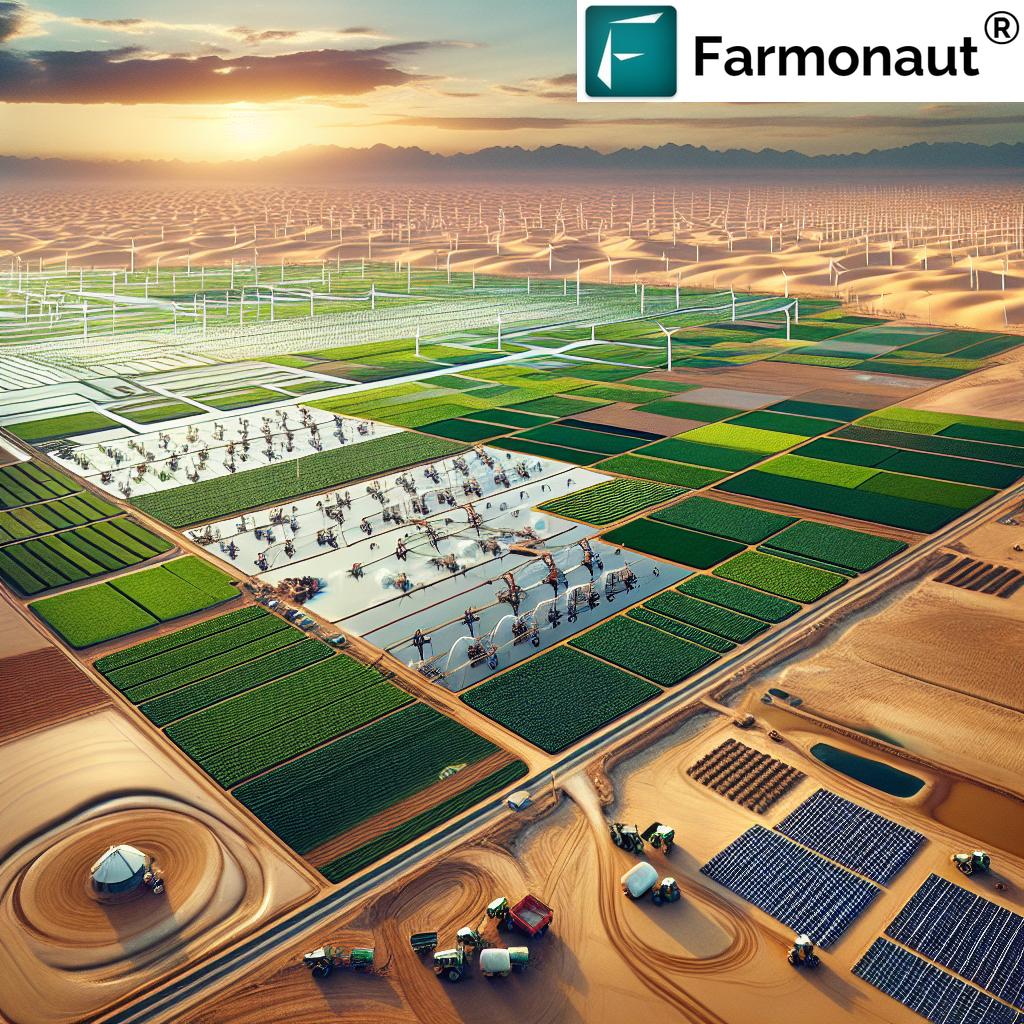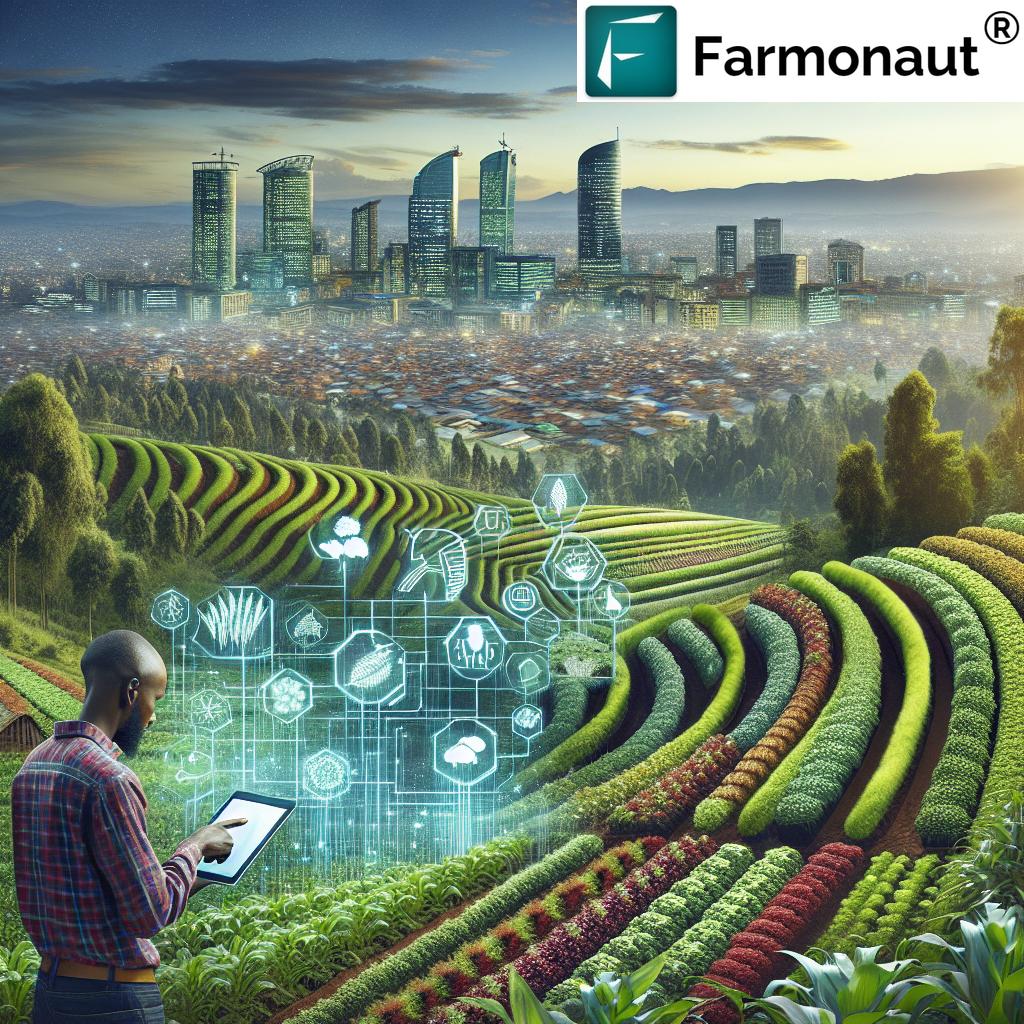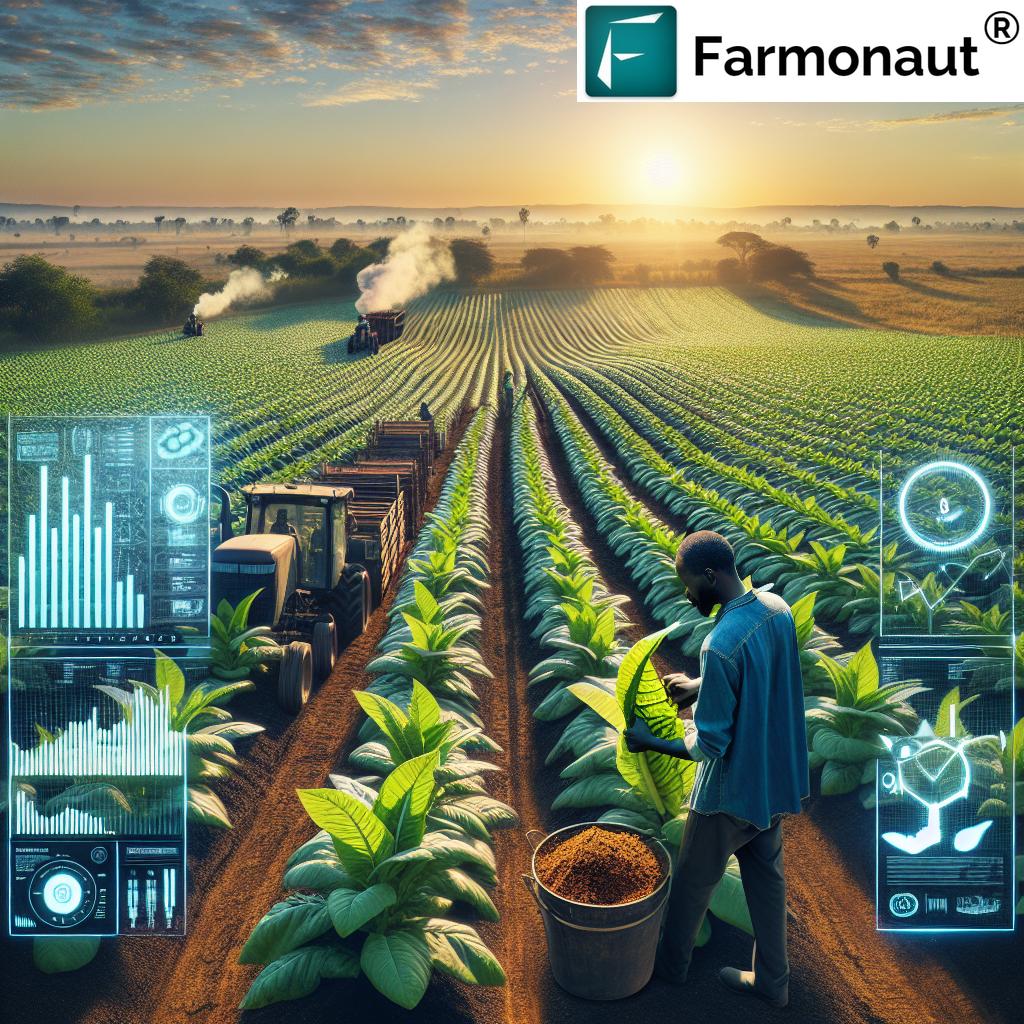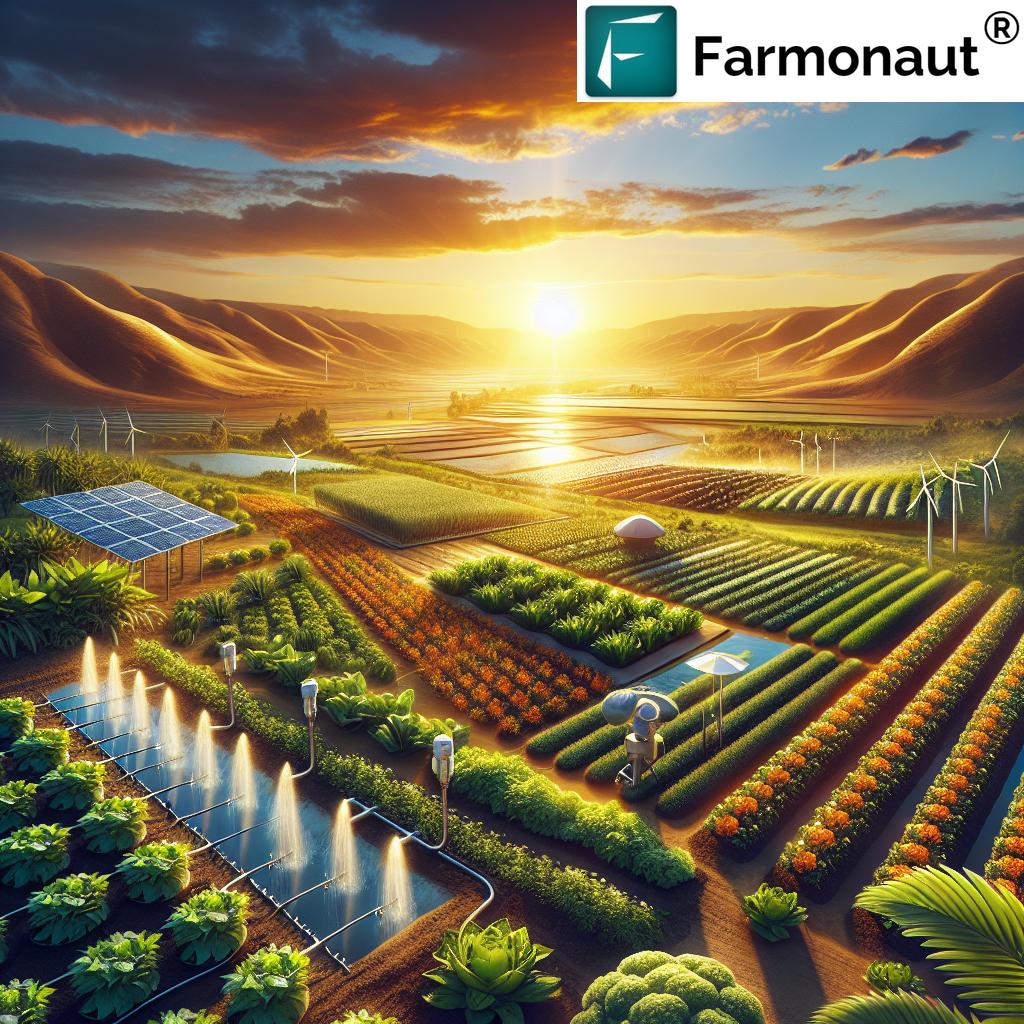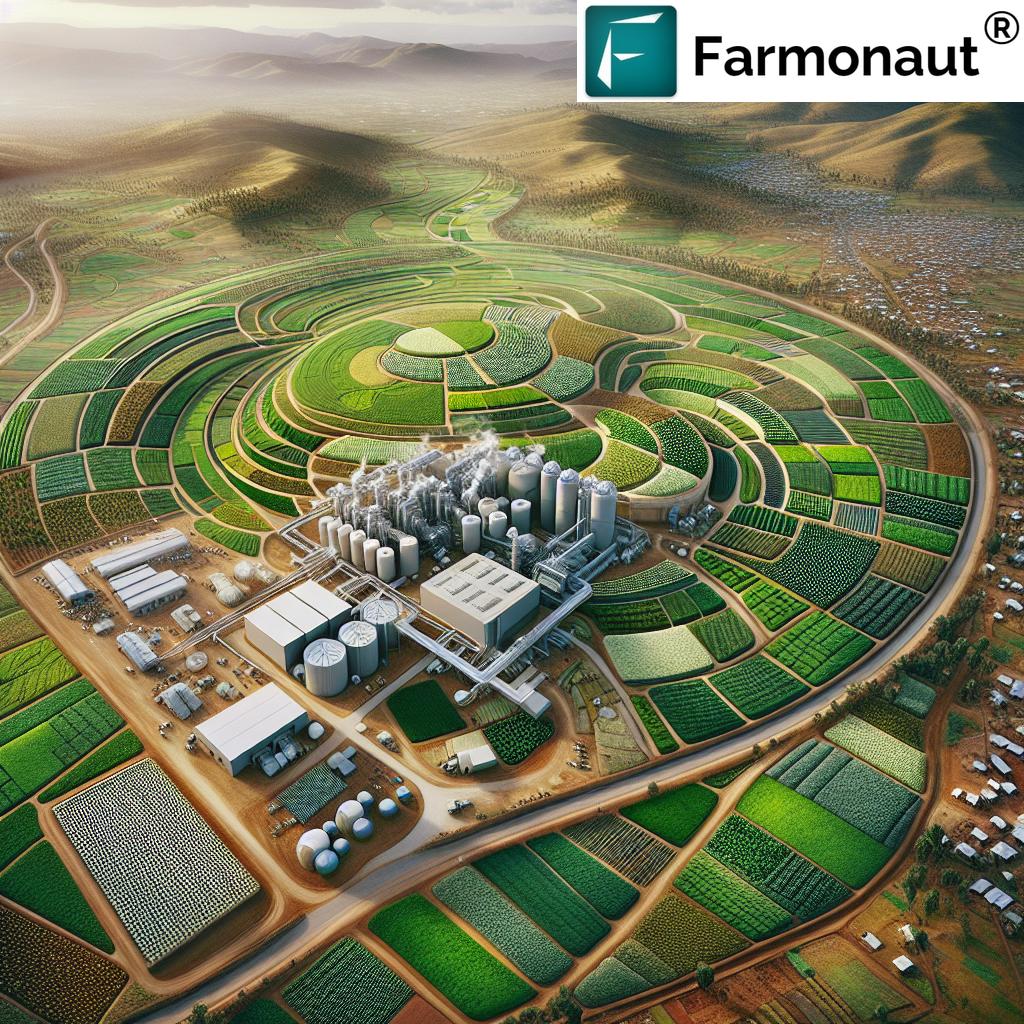South African Farming: 2025 Agriculture Innovation – Key Insights & Technology Trends
“By 2025, over 60% of South African farms are expected to adopt precision agriculture technologies for crop management.”
Introduction: The New Landscape of South African Farming
South African farming stands at a pivotal moment in 2025. As a cornerstone of the nation’s economy, agriculture contributes not just to the GDP but also to food security, rural employment, and the livelihoods of millions. Today’s south african farming industry is being reshaped by a unique convergence of climatic pressures, technological advancements, policy evolution, and global market shifts.
Farmers, stakeholders, and policymakers must now navigate this complex landscape with adaptability, innovation, and resilience. This comprehensive guide dives into exactly how south african agriculture is embracing innovation in 2025 – from precision farming and smart irrigation to digital decision support and sustainable practices.
“Smart irrigation systems could reduce South African farm water usage by up to 30% in 2025 compared to 2020 levels.”
Current State of South African Farming and Agriculture in 2025
The current state of south african farming is best described as diverse and dynamic, encompassing commercial operations, smallholder farms, and communal land systems. The country produces a wide array of crops – from staple grains like maize and wheat to citrus fruits, deciduous fruits, nuts, and high-value wine grapes. The livestock sector is equally critical, with substantial cattle, sheep, and poultry farming operations.
- Agriculture’s focus now encompasses not just productivity but also sustainability and environmental stewardship.
- South African agriculture contributes approximately 2-3% to the national GDP, but its importance in food supply, employment, and export revenues – especially for rural communities – is much greater.
- The south african farming industry is characterized by its adaptability – from overcoming severe droughts to pioneering export markets for citrus and wine.
- Despite recent progress, challenges remain significant. As the sector faces water scarcity, disruptive climate patterns, evolving land reform policies, and global competition, innovation is no longer optional — it’s essential.
What Makes South African Farming Unique?
- Diverse agro-ecological zones: The country ranges from arid zones to fertile river valleys, allowing for a rich mix of crops and livestock systems.
- Global export leader: South Africa is among the top producers and exporters of citrus and wine internationally, contributing significantly to foreign exchange earnings.
- Community-Driven: Rural and communal land farming play a vital role in food security for millions.
- Commercial scale: Large, sophisticated commercial operations are embracing smart technology to remain globally competitive.
Key Challenges Shaping the 2025 Landscape of South African Farming
While south african agriculture remains a cornerstone of the economy, several challenges intensify as we move through 2025:
- Water Scarcity & Droughts: Access to reliable water supplies remains the most pressing issue, with climate change triggering erratic rainfall patterns and prolonged droughts in key regions. This has heightened the need for innovations in water management and efficiency to sustain yields and rural livelihoods.
- Climate Volatility: Severe weather events, changing seasons, and increased pest pressures challenge both crop and livestock systems.
- Land Reform & Uncertainty: Ongoing land reform policies aimed at redressing historical inequalities continue to evolve, often creating investment uncertainty over ownership and long-term planning.
- Global Market Shifts: The south african farming industry must now compete globally while also navigating supply chain disruptions, fluctuating prices, and stringent export standards.
- Socio-Economic Pressures: Rural communities are impacted by unemployment, migration, and poor infrastructure, further straining the sector’s ability to provide food security and sustainable income.
Despite these hurdles, south african farmland remains resilient and forward-facing, increasingly embracing innovation to turn challenges into opportunities.
Technological Innovation & Smart Digital Farming in South African Agriculture 2025
Technology is transforming south africa farming at an unprecedented scale in 2025. Precision agriculture, digital monitoring, and smart resource management are now the cornerstones of modern agricultural systems. These tools help farmers make data-driven decisions, optimize inputs, reduce environmental impact, and improve yields—changing both commercial operations and smaller smallholder farms.
1. Precision Farming & Satellite Monitoring
- What is it? Precision farming uses satellites, drones, and IoT sensors to collect granular data on crop health, soil conditions, water availability, and more.
- How does it help? Farmers can pinpoint areas needing attention, improve fertilizer and pesticide application, and monitor crop growth with unprecedented accuracy. This leads to increased efficiency, cost savings, and higher sustainability.
- Benefits: Yield increases of 10-25% are becoming common, with input costs reduced by up to 20% and better resilience against weather shocks.
An example of how modern technology integrates into the local landscape—Farmonaut also empowers south african farmers with real-time, affordable satellite-based monitoring (see more about large scale farm management here).
2. Drone Technology & AI in Agriculture
- Drone monitoring: Drones perform aerial surveys, scout for pests, monitor plant health, and even apply fertilizers/pesticides precisely where needed.
- AI integration: Artificial intelligence analyzes drone images to identify problems earlier and recommend optimal actions.
AI and drones are rapidly closing the information gap and making precision farming a feasible reality for a wider range of south african farms.
3. Smart Irrigation & Water Management
- Smart irrigation systems: Automated, sensor-based systems deliver water precisely when and where crops need it, significantly reducing waste.
- Drip irrigation: Has become widely adopted for fruit, citrus, and vegetable crops to tackle scarcity.
- Satellite-derived insights: Modern solutions such as those by Farmonaut (carbon footprinting for sustainable agriculture) help track not just water but also the environmental impact of irrigation choices.
With smart irrigation, some regions of South Africa have cut water consumption by up to 30% compared to traditional practices—critical for climate resilience.
4. Digital Platforms, Apps, and Real-Time Advisory Tools
- Market & weather information: Mobile platforms now provide farmers—including smallholder operations—with vital data on weather, prices, pest outbreaks, and more, helping plan each farm operation with confidence.
- Blockchain for traceability: Blockchain systems add transparency and trust, ensuring that south african crops (like wine or citrus) can be traced from farm to export destination (see product traceability for agriculture).
- AI-based advisory: Solutions like Farmonaut’s Jeevn AI offer tailored, data-driven recommendations, weather forecasts, and problem diagnosis for diverse farming systems.
- Intuitive access: With



Farmonaut’s platform is accessible directly on the web, Android, iOS, and via versatile APIs (see developer documentation).
Technology Adoption & Estimated Impact Table (2025) for South African Farming
| Technology | Description | Est. Adoption Rate (2025, % of Farms) | Est. Yield Increase (%) | Est. Water Savings (%) | Sustainability Impact |
|---|---|---|---|---|---|
| Precision Farming (Satellite, Sensors) | Satellite data and IoT sensors for targeted input management, soil health, and yield mapping | 60% | 10-25% | 10-25% | Reduces overuse of agrochemicals; supports climate-smart adaptation |
| Drone Monitoring & Aerial Survey | Remote crop scouting; early pest/disease detection; precise agrochemical application | 40% | 8-15% | 5-10% | Minimizes chemical runoff; improves biodiversity by reducing blanket spraying |
| Smart Irrigation Systems | Automated, sensor-based irrigation & drip systems for optimal water supply | 55% | 7-15% | 20-30% | Addresses water scarcity; enhances drought resilience |
| AI-Based Advisory Platforms | Real-time recommendations for pest, nutrient, and water management | 35% | 10-18% | 6-12% | Optimizes use of inputs, reducing waste/emissions |
| Blockchain Traceability | End-to-end supply chain transparency for key export crops and livestock | 22% | 5-10% | N/A | Reduces fraud; enables premium market access and sustainability verification |
Sustainability and Climate Adaptation – The New Imperative for South African Farmland
As climate change intensifies, sustainability is now an absolute prerequisite for the future of south african farming. Innovation in farming systems is rapidly adopting both nature-based and digital solutions to strengthen the sector’s resilience.
- Conservation Agriculture: Practices like minimum tillage, crop rotation, and cover crops are increasingly adopted to maintain soil health and conserve water.
- Agroforestry Systems: Integrating trees with crops and livestock increases biodiversity, boosts carbon sequestration, and provides climate mitigation co-benefits.
- Renewable Energy Adoption: Solar-powered irrigation pumps and microgrids are helping farms reduce dependence on unreliable grid power and fossil fuels.
- Carbon Tracking: Advanced platforms (e.g., Farmonaut’s carbon footprinting) allow producers to monitor and manage their environmental impact for both local and global markets.
Regenerative agriculture is gaining pace in South Africa — improving soil health, promoting water retention, and enhancing on-farm biodiversity for a more sustainable future.
Water Management: A Survival Strategy
Scarce access to water remains the central issue for the south african farming industry. Innovation is emerging at many levels:
- Rainwater harvesting and storage tanks are widely adopted by smallholder and commercial farms.
- Modern smart irrigation systems save resources by delivering water only where and when it’s required.
- Farmonaut’s fleet and resource management tools help optimize farm logistics, further reducing water and fuel wastage.
Food Security, Livelihoods, and Export Resilience
Adopting sustainable farming and technology not only protects the environment but also ensures food security for millions and supports employment across rural areas. Exports of citrus, wine, and other high-value commodities remain critical for South Africa’s place in the global market.
Policy, Land Reform, and Market Access: The Evolving Framework
As south african farming evolves, policy frameworks must keep pace:
- Land Reform Policies: Efforts aimed at empowering black farmers and rural communities are ongoing, with policy-makers striving to create a more inclusive agricultural landscape and safeguard future investment in farmland.
- Export & Market Access: Preferential trade agreements open international markets for south african agriculture, but shifting global standards require farmers to invest in traceability and sustainability certification.
- Digital Inclusion: Modern digital platforms (like those offered by Farmonaut) are helping to bridge market access gaps for smallholder and communal operations.
- Financial Access: Innovations such as satellite-based loan verification (crop loan and insurance verification) are improving access to finance, reducing fraud risk, and supporting sustainable investments in farming systems.
With an evolving policy environment, the goal remains a sector that’s resilient, competitive, and equitable – able to face global challenges hand in hand with the latest technologies.
Farming Innovation Videos: Watch 2025 Trends in Action
See real-world impacts in South Africa and surrounding African regions—smart farming and digital tools are now within practical reach for both large-scale and small-plot farmers and agricultural businesses.
Future Outlook: Navigating 2025 and Beyond in South African Farming
South African agriculture is in a period of transformation. Challenges such as water scarcity, climate volatility, and market uncertainty are demanding new ways of thinking – and delivering. The sector’s ability to integrate smart technology, sustainable farming practices, and forward-looking policies will shape the landscape for years to come.
- By 2030, more than 75% of commercial and large smallholder farms are projected to use some form of precision agriculture technology.
- The shift toward climate-smart solutions is empowering farmers to maintain food security and incomes while conserving natural resources.
- Ongoing digitalization is expected to make even the most advanced agricultural systems accessible to rural and marginalized producers—closing the equity gap.
In summary, south african farming in 2025 is defined by resilience, innovation, and a growing culture of sustainability.
Farmonaut: Making Satellite Technology Accessible for South African Farming
At Farmonaut, our mission is to democratize access to satellite-driven agricultural insights for the south african farming industry and beyond. Here’s how our platform is designed to address the unique challenges and opportunities of south african agriculture in 2025:
- Cost-effective satellite monitoring: We provide multispectral imagery and analytics for crop health, soil condition, and water management at a fraction of traditional hardware costs. This greatly benefits both commercial operations and smallholder farmers.
- API and app access: Farmers, agribusinesses, and developers can seamlessly integrate satellite data through APIs and our web app, Android app, and iOS app.
- AI-driven advisory systems: Our Jeevn AI provides real-time, climate-relevant insights customized for south african crops, including maize, wheat, citrus, nuts, as well as livestock and mixed systems.
- Blockchain-based traceability: We enable secure, transparent, and fraud-resistant supply chains for export commodities via blockchain traceability solutions.
- Environmental impact tracking: Farmonaut’s carbon footprinting monitors greenhouse gas emissions and carbon sequestration—supporting both local compliance and international sustainability demands.
- Fleet/resource management: Efficient fleet management solutions enhance operational efficiency, reducing input waste and safeguarding the environment.
- Supporting financial access: Our satellite-based verification improves loan and insurance access for farmers, minimizing fraud and helping rural producers grow sustainably.
By integrating satellite imagery, AI, and blockchain, we strive to empower users in south african agriculture to thrive in a fast-evolving world.
Find out how easy it is to get started—visit the Farmonaut web/app platform today.
Flexible Farmonaut Subscription and API Options
For users across south african farming—from smallholder farmers to large agricultural enterprises—Farmonaut offers flexible and cost-effective satellite monitoring with subscription packages. Our solutions scale to meet farming needs and budget, ensuring that innovative technology is affordable for all.
Developers and agritech companies can also access Farmonaut’s API to build bespoke agricultural solutions for south african farmland and beyond. Read more in the API developer docs.
FAQ: South African Farming & Agriculture Innovation 2025
What are the biggest technology trends in South African agriculture in 2025?
The main trends are precision farming (satellite and sensor-driven monitoring), drone and AI-based crop management, smart irrigation for efficient water use, and the adoption of blockchain for supply chain traceability (especially vital for crops like citrus and wine). Mobile and web applications are now accessible to even smallholder farmers.
How much of South Africa’s farmland uses precision agriculture?
As of 2025, over 60% of farms are expected to use some form of precision agriculture technology—this number is projected to grow rapidly as digital platforms become more accessible and cost-effective.
Which crops and sectors benefit most from these innovations?
Major beneficiaries include citrus, deciduous fruit, nuts, maize, wheat, and livestock operations. Export-facing sectors adopt advanced systems to maintain international competitiveness, comply with traceability requirements, and optimize resource use.
How does smart irrigation help tackle water scarcity in South African farming?
Smart irrigation systems (sensors, timers, and drip lines) can save up to 30% of water use compared to 2020 levels, helping farmers adapt to both drought and erratic rainfall patterns.
What is Farmonaut’s role in South African agriculture innovation?
We provide affordable, satellite-based crop, resource, and environmental monitoring, accessible via web, Android, iOS, and API. Our services help farms of all sizes enhance yield, reduce operating costs, achieve sustainability goals, and access global financial or export markets with traceable, verified data.
Is Farmonaut suitable for both large commercial and smallholder farmers?
Yes! Our mission is to empower both large-scale farms and smallholder producers by offering modular and scalable platforms, adaptable to farm size, crop diversity, and investment capacity.
Where can I get started with Farmonaut?
South African Farming in 2025: Navigating Challenges and Embracing Innovation
To summarize, south african farming in 2025 is a story of transformation. With continued investments in innovation – from satellite-based precision agriculture to digital traceability, smart irrigation, and nature-based solutions – the sector remains resilient against the challenges posed by climate change, water scarcity, global market volatility, and policy uncertainty.
The future for south african agriculture is built on data, sustainability, and inclusiveness, where technology empowers farmers—both large and small—and strengthens food security well into the next decade.
Ready to bring precision and sustainability to your farm? Explore Farmonaut’s innovative platform today.

